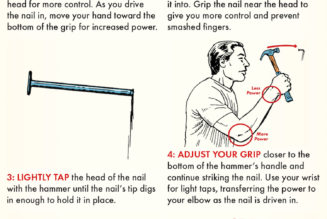One of the most memorable and significant stories from ancient philosophy is that of the ring of Gyges: the original ring of power. In it we have occasion through reflecting on the experience of invisibility to think about the importance of being seen by others in our life.
When an earthquake opens a chasm in the earth, an adventurous shepherd boy discovers a gold ring that turns out to have magical power. The ability to become invisible and the resulting freedom to act with impunity leads the boy to an ugly romp of seizing power, possessions, and people.
The story is told in the second book of the Republic by a student of Socrates who makes the case, in order to hear how Socrates will respond, that people naturally want things conventionally considered to be bad. The main reason people refrain from doing these bad things—things in their heart they deem to be good—is the fear of retribution or censure from those around them. The explicit ‘moral’ of the story is: “one is never just willingly but only when compelled to be.” And the main compulsion, so it seems, comes from other people who can see how you act.
In presenting this story in class each autumn, I normally ask my students to reflect: how would you act if we could remove the restraining factor of the judging eyes of others. This exercise might reveal an unfitting concern for ‘what others think’ and an under-appreciation of the intrinsic worth of acting well.
But a nuance now strikes me in thinking about being seen by others. We are designed not only to see but also to be seen. In the end, all that we do is, in a very real sense, done on a ‘stage:’ a stage that is necessarily open to the gaze of at least some others. There is no such thing as real invisibility. And indeed, we should be grateful for this. Who would really want to be invisible?
Yes, we can indeed think of invisibility as freedom. But to tell the truth, this is primarily when what we desire are things not so worthy to be seen. And often we know, or at least suspect, that this is the case.
Feeling invisible is a real suffering. Wanting to be invisible is too. There is of course also a being-concerned-about-what-others-think that is a common temptation and affliction. It is closely akin to and perhaps arises from the feeling of not-being-seen. It is probably a misplaced striving to remedy it.
All of this is to suggest that it is natural and good to want to be seen, along with the desire to become more worthy of being seen, and affirmed.
The ring of power speaks to something dark in us. As Plato’s student says about the person who acts unjustly when given the opportunity: “The reason for this is the desire to outdo others and get more and more.” Indeed, to the extent our heart inclines in this selfish direction, we will value invisibility and at the same time carefully curate our appearance—which of course is to curate our remaining invisible.
No wonder so many today, especially but not only the young, have the horrible experience of feeling invisible.
But again, no one is really invisible. Perhaps the great drama of life is in recognizing who really see us, and what they see. There are eyes that always see what is good in us; for it is for the good that they are looking; even when there is much other than good to be seen. These eyes can see from afar—although truth be told it is we that go ‘afar,’ not this seer. While well aware of our failure, these eyes scan for the good, and are remarkably adept at finding it.
They are especially keen when someone returns to himself, and so turns toward home. That is one thing these eyes will never miss or overlook. Just like a father; or a mother; or a true friend; or a real teacher.
We too can learn to see others as those eyes do. We can participate in bringing that vision to bear on those around us. And we can also rediscover that we ourselves are never invisible. And we can rejoice in this truth. Together. ~ ~ ~
OUR NEWEST PODCAST: AUTHORITY AND SUBMISSION: Is It Necessary in Marriage? Join Sofia and me in discussing a thorny issue at the heart of marriage. Check out and share our other PODCASTS too.
LifeCraft is active at YOUTUBE–Subscribe HERE and INSTAGRAM–Follow HERE
Husband, father, and professor of Philosophy. LifeCraft springs from one conviction: there is an ancient wisdom about how to live the good life in our homes, with our families; and it is worth our time to hearken to it. Let’s rediscover it together. Learn more.







